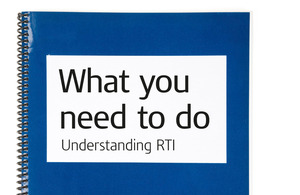PAYE attention – RTI is coming
Employers are being urged by HM Revenue and Customs to get ready for major PAYE changes that come into effect in three months’ time.

PAYE attention – RTI is coming
In April 2013 employers will have to start sending PAYE returns electronically, using RTI-enabled payroll software, to HM Revenue and Customs (HMRC) each time they pay their employees as part of routine payroll processes. The returns will include details of all employees’ pay, tax and deductions. This new process will replace sending a separate return at the end of the year.
To be ready employers should follow these three easy steps:
-
Visit HMRC website at hmrc.gov.uk/rti for comprehensive information about RTI, including how to prepare, payroll software options and hints and tips to help avoid some common pitfalls.
-
Acquire new or updated payroll software – employers will need to talk to their payroll software provider or their payroll service-provider (if they have one) about this.
-
Start checking and updating employee information. It’s vital that the information employers have about their employees is accurate and up to date.
Ruth Owen, HMRC’s Director General Personal Tax, said:
To avoid a last minute rush it’s vital employers act now, if they have not already done so.
Employers will need to send their first return – called a ‘Full Payment Submission’ or ‘FPS’ for salary or wage payments made to employees on or after 6 April – and if they have 250 or more employees they will have to send an Employer Alignment Submission before the first FPS.
Although reporting PAYE in real time will be straightforward for most, some preparation is needed. There is more to it than simply buying or updating software – although this is key. Employers may need to add employees such as casuals or those below the Lower Earnings Limit to their payroll system and must think about their payroll practices to make sure that they work for real-time reporting.
Information on data quality can be found here.
A webinar called “Get ready to operate PAYE in real time”.
Help is also available from another webinar and a YouTube video, both called “Real Time Information (RTI) – what it means for employers”.
Notes for editors
Employers are required to begin to report in real time in April 2013, unless HMRC has specified a different date.
The RTI pilot was launched in April 2012 with just 10 employers. Since then, the pilot has expanded three times. By 31 March 2013, HMRC expects PAYE records for around 6 million people to be reported in real time.
More information can be found here.
Reporting PAYE in real time will bring it into the 21st century and will allow HMRC to receive information on employees’ earnings, tax and National Insurance Contributions as they are paid, rather than at the end of the year. RTI will make it easier for employers to administer PAYE and will make tax more accurate.
RTI will also support the operation of Universal Credit – the Government’s flagship welfare programme – which brings together means-tested in and out-of-work benefits, Tax Credits and support for housing, and will improve work incentives and make work pay.